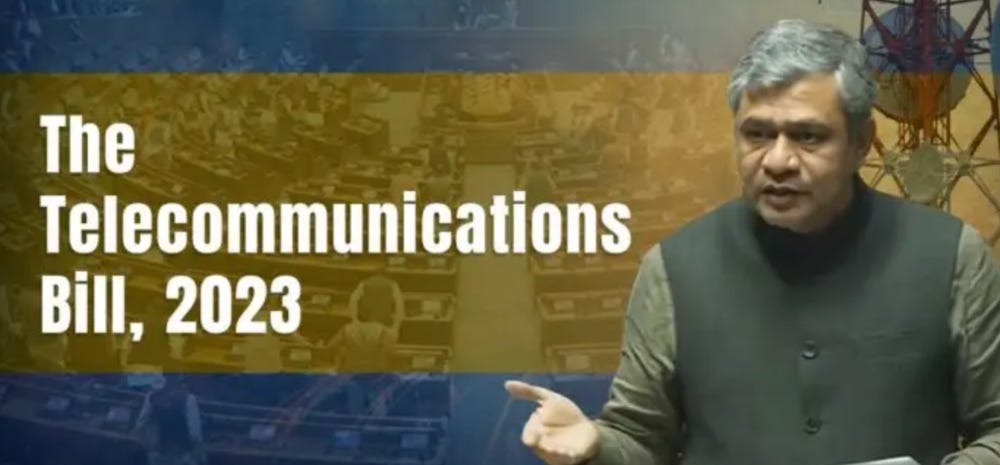Telecom Transformation: 2023 Telecommunications Bill
From Spectrum Shake-up to Cyber-Security Overhaul - Inside India's Bold Move to Transform Telecom
In a groundbreaking moment, India gears up for a telecom revolution with the recent approval of the Telecommunications Bill, 2023.
This legislative leap isn't just about national security; it's a comprehensive transformation touching spectrum allocation, cyber-security, and simplifying archaic laws.
Dive into the details of how this bill is poised to reshape India's telecom landscape, ushering in an era of innovation and resilience.
In a significant move, the Lok Sabha approved the Telecommunications Bill, 2023, a crucial step towards transforming India's telecom landscape.
The bill, ushered by Communications Minister Ashwini Vaishnaw, addresses critical aspects, including national security measures and reforms in spectrum allocation.
Key Provisions and National Security Measures:
The Telecommunications Bill, of 2023, grants the government temporary control over telecom services in the interest of national security. In public emergencies or public safety concerns, the government can take possession of a telecom network. The bill allows for stopping transmission and intercepting messages to prevent incitement from committing offenses.
"The bill will promote structural reforms in the telecom sector," remarked Vaishnaw during the debate.
Spectrum Allocation Reforms:
The bill introduces a non-auction route for the allocation of spectrum to satellite communications companies, aligning with the demands of global satellite services firms. Contrary to the auction route advocated by domestic telecom players like Jio and Vodafone Idea, the bill outlines that spectrum for telecommunication shall be assigned through auction, with specific exceptions listed in the First Schedule.
The First Schedule includes global mobile personal communication by satellites, national and international long-distance services, mobile satellite services, VSAT, In-Flight and maritime connectivity, and more. The administrative method will be used for assigning spectrum in these cases.
Structural Reforms and Simplification:
Once passed, the bill will necessitate authorization instead of licenses for companies to start providing telecom services. The proposed penalties on telecom operators will see a cap at Rs 5 crore per circle, significantly reduced from the earlier Rs 50 crore, implying a maximum penalty of around Rs 1,100 crore on a telecom company.
The bill also emphasizes protective measures for telecom infrastructure, ensuring smooth network roll-outs, especially for optical fiber cables. Additionally, it exempts telecom networks installed on any property from claims, encumbrances, or liquidation related to the property.
Security Measures and Cyber-Security:
The bill mandates the capture of verifiable biometric data for issuing SIMs to prevent misuse of telecom resources. It introduces penalties, including imprisonment of up to three years or a fine of up to Rs 50 lakh for obtaining SIM or other telecom resources through fraud or cheating.
The proposed legislation aims to strengthen the legal system for dealing with cyber-security issues and encourages innovation through the provision of a regulatory sandbox.
Four-Tier Dispute Resolution and Repealing of Laws:
Vaishnaw highlighted the introduction of a four-tier dispute resolution mechanism, aimed at reducing litigation in the sector. He emphasized that the bill would repeal two laws, including the 138-year-old Indian Telegraph Act, 1885.
Despite the opposition's absence in the debate, Vaishnaw expressed confidence that the bill marks a significant step towards major reforms in the telecom sector. He highlighted the move from multiple licenses to a simple authorization system, streamlining processes and promoting innovation.
The passing of the Telecommunications Bill, 2023, is poised to bring about substantial changes, reinforcing national security measures, optimizing spectrum allocation, and simplifying regulatory processes in India's telecommunications landscape.
Thanks for being a part of the Rise & Shine community!
Thank you for reading our newsletter!💛
Join our community on LinkedIn.


